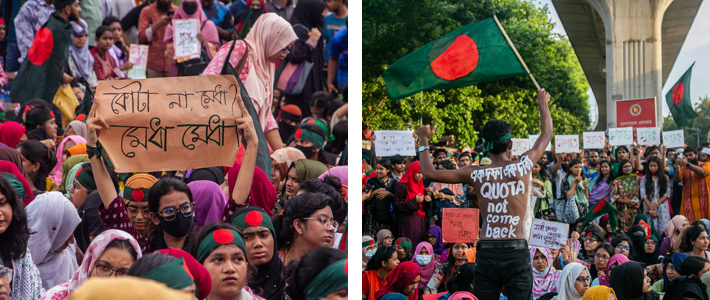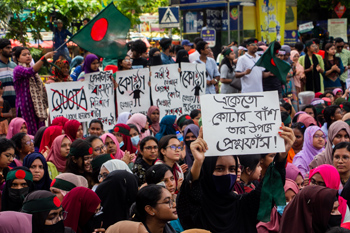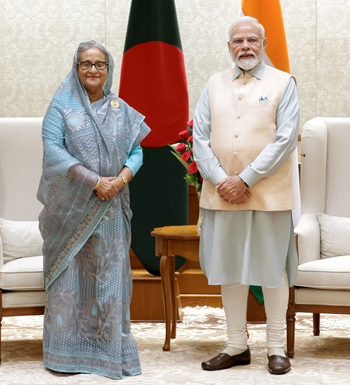INDIAN ARMED FORCES CHIEFS ON OUR RELENTLESS AND FOCUSED PUBLISHING EFFORTS

The insightful articles, inspiring narrations and analytical perspectives presented by the Editorial Team, establish an alluring connect with the reader. My compliments and best wishes to SP Guide Publications.

"Over the past 60 years, the growth of SP Guide Publications has mirrored the rising stature of Indian Navy. Its well-researched and informative magazines on Defence and Aerospace sector have served to shape an educated opinion of our military personnel, policy makers and the public alike. I wish SP's Publication team continued success, fair winds and following seas in all future endeavour!"

Since, its inception in 1964, SP Guide Publications has consistently demonstrated commitment to high-quality journalism in the aerospace and defence sectors, earning a well-deserved reputation as Asia's largest media house in this domain. I wish SP Guide Publications continued success in its pursuit of excellence.
- MoD initiates comprehensive review of Defence Acquisition Procedure 2020, pushes for defence reforms
- G7: The Swansong
- Kalinga Connect: South Asia to Polynesia
- Advanced MRSAM for India for a greater firepower
- Must Credit DRDO for Operation Sindoor, now what is next for defence R&D?
- Operation Sindoor | Day 2 DGMOs Briefing
- Operation Sindoor: Resolute yet Restrained
Bangladesh in Turmoil: From Liberation to Frustration
Sheikh Hasina came to power as a progressive democratic leader. There is no doubt that she brought economic stability to Bangladesh and she is credited with raising Bangladesh's political and economic stature to the global map. Her abrupt departure has now created a power vacuum that threatens to destabilise the country further.

The streets in Dhaka, once bustling with the everyday rhythm of life, now echo with the chants of thousands. Bangladesh, a nation born from struggle, finds itself once again at a crossroads. This report delves into the heart of the ongoing protest crisis that has gripped the country.
Sheikh Hasina's 15-year rule ended on Monday as she fled to India. The military announced it would form an interim government while the uncertainties remain over the protestors' demand to play a part in forming a government.
Sheikh Hasina's 15-year rule ended on Monday as she fled to India. The military announced it would form an interim government while the uncertainties remain over the protestors' demand to play a part in forming a government. President Mohammed Shahabuddin dissolved parliament on Tuesday to facilitate the formation of an interim administration.
A Nation's Journey: From Liberation to Frustration
Bangladesh's story is one of resilience and determination. Born in 1971 after a bloody war of independence, the country has made remarkable economic development and social progress. However, beneath the surface of impressive GDP growth and poverty reduction statistics, discontent has been simmering.
"We fought for freedom, for democracy," says Rahima Begum, a 65-year-old who witnessed the birth of the nation. "But today, our children fight for the very same ideals we thought we had secured."
Bangladesh's story is one of resilience and determination. Born in 1971 after a bloody war of independence, the country has made remarkable economic development and social progress. However, beneath the surface of impressive GDP growth and poverty reduction statistics, discontent has been simmering.
A Nation on the Brink
Bangladesh, a country known for its resilience in the face of adversity, finds itself once again at a critical juncture. The streets of Dhaka, usually bustling with life and commerce, now echo with the chants of protesters and the tension of political uncertainty. At the heart of this crisis lies a contentious job quota system and the shocking departure of Prime Minister Sheikh Hasina to neighbouring India.
The Powder Keg: Job Quota Protests

For years, Bangladesh's public sector job quota system has been a source of simmering discontent. Originally designed to level the playing field for disadvantaged groups, it has increasingly been viewed as a barrier to meritocracy and fair employment practices.
The spark that lit the fire in early 2023, frustration boiled over as thousands of students and job seekers took to the streets. Their demand was clear - reform the quota system that reserves 56 per cent of government jobs for special groups. The protesters argued that this system unfairly disadvantages qualified candidates who don't fall into these categories.
"We're not against quotas for truly disadvantaged groups," said Mahmud, a 24-year-old engineering graduate. "But when more than half of government jobs are reserved, where does that leave the rest of us?"
For years, Bangladesh's public sector job quota system has been a source of simmering discontent. Originally designed to level the playing field for disadvantaged groups, it has increasingly been viewed as a barrier to meritocracy and fair employment practices.
The government's initial response was tepid, promising to "look into the matter." This perceived indifference only fuelled the protesters' resolve.
The Quota Reform movement was a very popular movement, driven by high unemployment and the 30 per cent quota for the families of freedom fighters, which was not acceptable to the masses. Despite the widespread demand for reform, Prime Minister Hasina did not take the issue seriously, which played a part in her downfall. Additionally, the delayed response to public outcry, and the killing of students and people by law enforcement agencies and party workers, created significant troubles for her administration. These issues collectively led to her fall from grace.
Dhaka burns
The situation in Dhaka is quite chaotic. The city appears to be under the control of the general populace, with no visible presence of law enforcement officers on the streets, following Prime Minister Sheikh Hasina's resignation. The first day after Hasina's departure saw a tense atmosphere at the Secretariat, with significantly reduced attendance in ministry offices. Ministers and Members of Parliament were notably absent, and those who did attend were reported to be overwhelmed with fear and anxiety, as noted by the Dhaka Tribune.
"People are expressing their joy and newfound freedom by visiting high-security areas like the Parliament and Ganabhaban without restrictions, likening it to second independence," narrates a young journalist, Jamir.
Frustration boiled over as thousands of students and job seekers took to the streets. Their demand was clear - reform the quota system that reserves 56 per cent of government jobs for special groups.
He further explains the situation, "However, the aftermath has also seen violence and unrest. Awami League offices have been set ablaze, and party leaders are reportedly not safe, with many having fled their homes. There is significant concern among minority communities, who are feeling threatened. In the last four hours, I have received reports of 13 incidents of attacks on minorities. At Dhaka University, the atmosphere is one of celebration. The students are in high spirits as if experiencing true independence for the first time."
A Leader in Flight: Sheikh Hasina's Exodus

Sheikh Hasina began her political career as a pro-democracy icon and was very popular during a time when the country was under military control. She came to power as a progressive democratic leader. There is no doubt that she brought economic stability to Bangladesh and she is credited with raising Bangladesh's political and economic stature to the global map.
"However, she has become increasingly autocratic in recent years, clamping down on any opposition to her rule. She won an unprecedented fourth term as Prime Minister in a January election widely criticised as being an unfair election. The last three national elections were unacceptable to many people because they did not have the chance to vote freely. Day by day, she became more unpopular and was perceived as becoming a dictator. People were unhappy with her arrogance and stubbornness," said a political activist and journalist based in Dhaka.
As the protests intensified, a political bombshell dropped: Prime Minister Sheikh Hasina had suddenly left for India. This unexpected move sent shockwaves through the nation and raised serious questions about the stability of the government.
Regardless of the reason, Hasina's absence has created a power vacuum that threatens to destabilize the country further.
Regional Ripples: South Asia on Edge
The crisis in Bangladesh has not gone unnoticed by its neighbours. India, in particular, finds itself in a delicate position as host to Sheikh Hasina and a key regional player.
India's Balancing Act will now centre on a few fundamentals as the foreign policies trend now. New Delhi faces a complex diplomatic challenge in supporting stability: India has a vested interest in a stable Bangladesh, both for economic reasons and to maintain regional security. Also, India needs to maintain the policy of non-interference as overtly supporting Hasina could be seen as meddling in Bangladesh's internal affairs. Lastly, there are fears that prolonged instability could lead to a refugee crisis, putting pressure on India's borders. Other regional powers, including China and Pakistan, are closely monitoring the situation, each with their strategic interests in mind.
However, the road ahead is still uncertain!
Manish Kumar Jha is a Consulting & Contributing Editor for SP's Aviation, SP's Land Forces and SP's Naval Forces and a security expert. He writes on national security, military technology, strategic affairs & policies.





